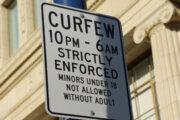Dealing with dental anxiety
The fear of going to the dentist is high on the list of general fears. Undergoing root canals and tooth extractions can strike fear in anyone. When fear prevents you from visiting the dentist’s office and getting routine work done, you may be experiencing dental anxiety.
One survey conducted by market research platform DentaVox showed that six out of 10 survey respondents worldwide reported dental fear. Nearly 4% admit that they have never been to the dentist’s office, and 16% say they only go under urgent circumstances. Fear of pain, smell of chemicals and the sound of drills are among the top reasons to avoid dental work. A smaller percentage, less than 10%, are afraid of being stuck in a dental chair, having to keep their mouth open for a long time and some are afraid of receiving a dental bill.
Dental anxiety can lead to major oral health problems like gum disease and tooth decay. “Teeth are one of the only parts of the body that do not heal on their own,” says Dr. Matthew Messina, clinic director of Upper Arlington Dentistry in Upper Arlington, Ohio, and assistant professor at Ohio State University College of Dentistry in Columbus. “If you have a cavity, it will never be smaller. The good news is that there’s almost nothing that dentists cannot fix, but the sooner it’s caught the easier it is to repair.”
Here are six tips to ease the fear of going to the dentist:
Tip 1: Choose the right dentist.
Overcoming your fear of going to the dentist starts with choosing the right dental practice. Word of mouth through family, friends and coworkers is usually the best way to get recommendations for the best dentists in your area. Choose two or three dentist offices to contact and see what you think on the phone. Did they respond to your call or return your message, and did they answer your initial questions?
If they left a positive first impression then make an appointment to meet with the dentist office. During the appointment, did the dentist and staff appropriately answer your questions? Is the office furnished in bright and cheerful decorations, or is there music playing in the background to put you in a relaxed mood?
“You want to choose a dental office that is known to be compassionate and caring, empathetic and understanding to give you confidence to go to their office,” says Dr. George Landress, who practices general dentistry in Danbury, Connecticut.
Tip 2: Speak up about your fears.
Acknowledge your fears by talking to your dentist or dental hygienist. Your dentist cannot help if they don’t know about your fears.
One recommendation is to write down your concerns so you don’t forget them during your appointment. This will allow your dentist to explain ahead of time what to expect. In addition, the dentist can provide detailed explanation during treatment to ease any concerns.
“The most effective treatment for dental anxiety is information. When we shine the light on what we are doing, why we are doing it and how it works, everyone relaxes,” Messina says. “Having a discussion with your dentist about your situation, the proposed solutions and procedures involved is the best way to ease anxiety.”
Tip 3: Prepare for the visit.
Choose a day for your appointment when it’s less hectic. Give yourself plenty of time to get to the dentist’s office so you’re not nervous when you arrive. Similarly, don’t overbook your day so you’re in a rush to leave and constantly checking the clock while you are sitting in the dentist’s chair — this will only add to your anxiety.
Avoid eating or drinking foods that have a significant amount of sugar or caffeine that might make you nervous and jittery. Messina recommends scheduling appointments in the morning because waiting until later in the day when you’re tired is not a good plan; the anticipation may allow your anxiety to build throughout the day.
You may want to have a family member or loved one accompany you during the visit. “It can help when someone is there in the waiting room to be there for any support,” says Dr. Tricia Quartey-Sagaille, a family dentist in Brooklyn, New York, and president of the NYC Greater Metropolitan Chapter of the National Dental Assocation.
Tip 4: Visit the dentist regularly.
For people with dental anxiety the last thing they want to do is visit the dentist. In fact, going to the dentist on a regular basis for cleanings and checkups will help avoid more serious procedures like root canals, implants, gum tissue grafts and the ubiquitous cavity fillings.
In addition to regular brushing and flossing, the American Dental Association recommends people should visit their dentist regularly for prevention and treatment of oral disease. Most insurance plans cover twice a year visits to monitor your oral health and catch problems early before they develop into something more serious. If a procedure is needed, don’t delay going because of dental anxiety; you don’t want problems with your teeth to develop into bigger issues.
“Since our biggest fears are of the unknown, the more often we come to the dental office, the more comfortable we will become with the process, the people and even the sounds and smells of the office. It can work as a form of desensitizing to stressors,” Messina says.
Tip 5: Manage the pain.
Pain is a major concern that keeps individuals away from the dentist’s office. There are a few ways to reduce dental pain.
First, ask your dentist if it’s okay to take an over-the-counter pain reliever before your visit. This can help minimize pain and discomfort. If you’re getting a cavity filled or having another procedure, your dentist will typically numb the area with an anesthetic. For major oral surgery, they may give you the option of sedation or general anesthesia.
“Modern dentistry is very effective in pain control,” Messina explains. “Use of topical anesthetics and advances in local anesthetics allow us to comfortably numb up teeth and have long-lasting, deep local anesthesia to allow dentists to repair teeth in a painless manner.”
There are several methods to help manage extreme forms of dental anxiety. There are topical anesthetics that can be applied to numb the tissue. Patients can also be sedated with:
— Nitrous oxide (laughing gas).
— Oral sedation (prescription medication).
— Deep sedation (IV sedation).
Tip 6: Understand cost of care.
While not the biggest fear, according to surveys, some respondents are scared of the bill from the dentist’s office. Dentists are constantly developing new tools and techniques to improve dental care and make you more comfortable, but that doesn’t always mean it’s covered by dental insurance. For instance, sedation is generally not covered by insurance.
Talk to your dentist about your dental insurance plan, and also find out if dentist has payment options available to help you. “Discuss the cost of care in advance to make sure that any financial concerns are clearly addressed, so that isn’t in the back of your mind and wearing on your ability to relax,” Messina adds.
How to overcome your fear of the dentist
Using these six strategies will help you overcome dental anxiety:
— Choose the right dentist.
— Speak up about your fears.
— Prepare for the visit.
— Visit the dentist regularly.
— Manage the pain.
— Understand the cost of care.
More from U.S. News
9 Habits That Are Killing Your Teeth
12 Proven Strategies to Stop Overthinking and Ease Anxiety Now
9 Foods and Beverages That May Promote Calm
6 Tips to Overcome Fears of Going to the Dentist originally appeared on usnews.com
Update 04/19/22: This story was previously published at an earlier date and has been updated with new information.







